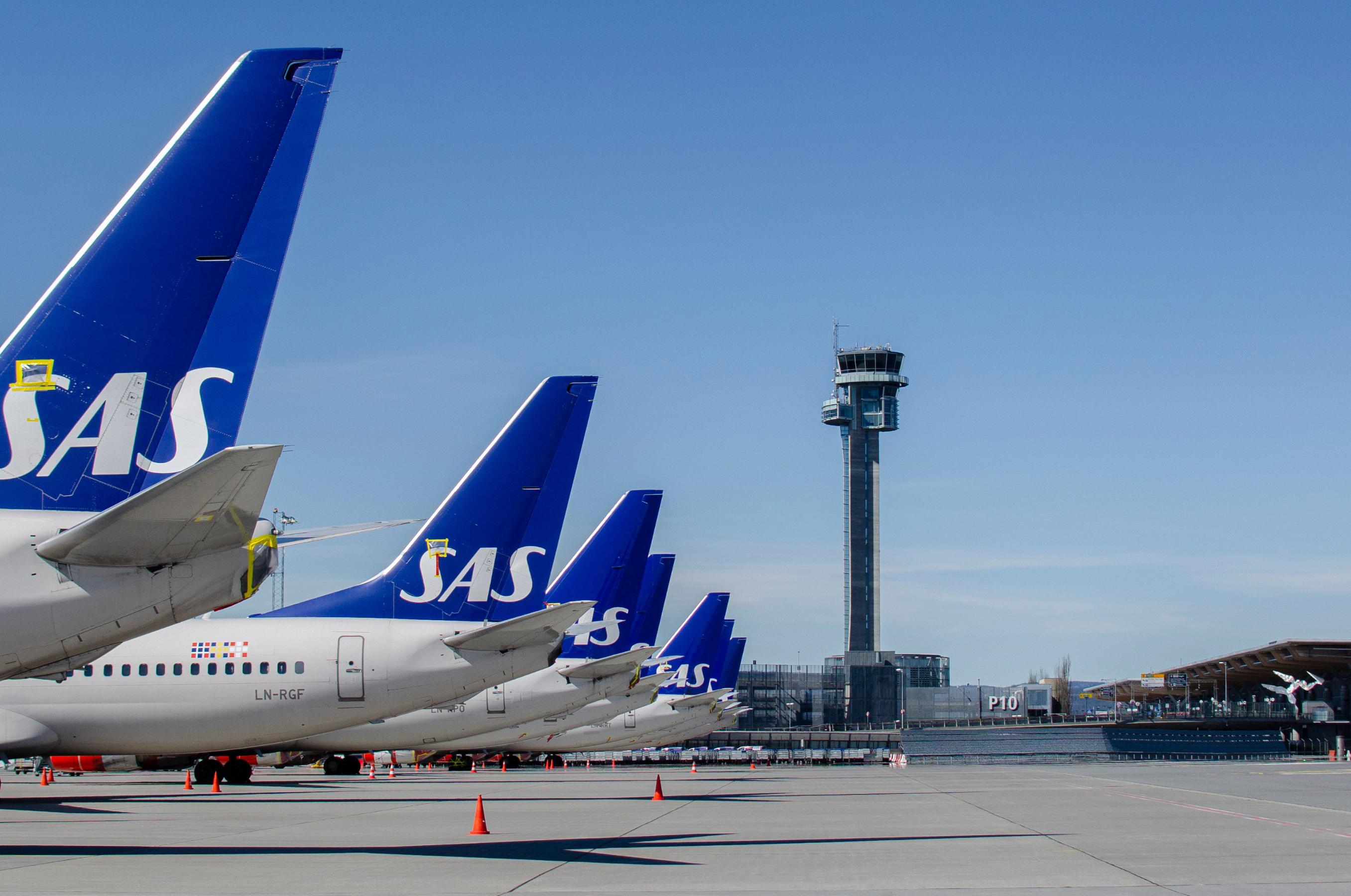
Credit: SAS
Sweden is set to see an annual MRO growth rate of 4.3% over the next decade.The Swedish National Debt Office has rejected Norwegian Air Shuttle’s loan-guarantee application, putting further pressure on the cash-strapped carrier, while Scandinavian Airlines (SAS) has separately secured EU approval for its state-backed refinancing plan.
Sweden began work on a SEK5 billion ($575 million) state-guarantee scheme for airlines in March, in response to the COVID-19 downturn. Up to SEK1.5 billion of this total was set aside for SAS, which went on to secure the amount in early May.
The scheme was made available to airlines that hold a Swedish commercial air transport license. Norwegian has a Swedish air operator’s certificate (AOC) held by Norwegian Air Sweden, which was the company that applied for the state guarantee.
To qualify, applicants had to be assessed as financially viable on Dec. 31, 2019—before the COVID-19 crisis hit.
“As of Dec. 31, 2019, there was a very high risk that Norwegian would not be able to fulfil its financial commitments and that the company was not deemed capable then of managing further indebtedness,” the Swedish National Debt Office said, delivering its decision Aug. 18. “Therefore, the company has not been considered financially viable as of Dec. 31, 2019. Accordingly, Norwegian’s application has been denied.”
The ruling cannot be appealed.
Norwegian did not immediately respond to Aviation Week’s request for comment.
Meanwhile, SAS received competition clearance from the European Commission (EC) for its planned refinancing, which includes five separate financial instruments, several of which are backed by Denmark and Sweden.
“The European Commission has approved Danish and Swedish plans to contribute up to SEK11 billion ... to the recapitalization of SAS. The measure was approved under the state-aid temporary framework. The recapitalization measure is part of a larger recapitalization package, which also foresees a significant participation of private investors, including the conversion of outstanding privately held debt instruments into equity,” the EC said in an Aug. 17 ruling.
Denmark is providing around SEK6 billion of the recapitalization, while Sweden will fund a further SEK5 billion, as part of a SEK14.25 billion package that also includes private investors.
However, this refinancing—which is critical to SAS’s future—still needs to be approved by the airline’s hybrid note and bond holders, who rejected SAS’s original proposal. They are now scheduled to meet on Sept. 2 to discuss SAS’s revised recapitalization plan. This will be followed by an extraordinary general meeting on or around Sept. 22.
“A successful conversion of the bonds and existing hybrid notes is still a very clear condition from the major shareholders [Sweden and Denmark] for their support in the recapitalization,” SAS CFO Torbjorn Wist said, speaking on an Aug. 17 webcast.
The airline’s chairman, Carsten Dilling, has stressed that the future of SAS rests on the recapitalization. SAS is aiming to access the funds by Oct. 31 and to complete the process by Nov. 5.
“SAS is currently facing a risk of default and insolvency,” the EC said, adding that this could have “serious consequences” for Scandinavian air connectivity.
SAS provides two-thirds of intra-Scandinavian flights and around 30% of international traffic from Denmark and Sweden.





